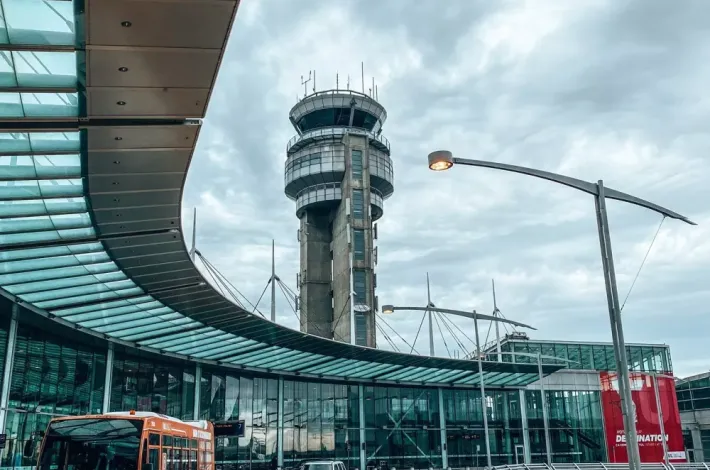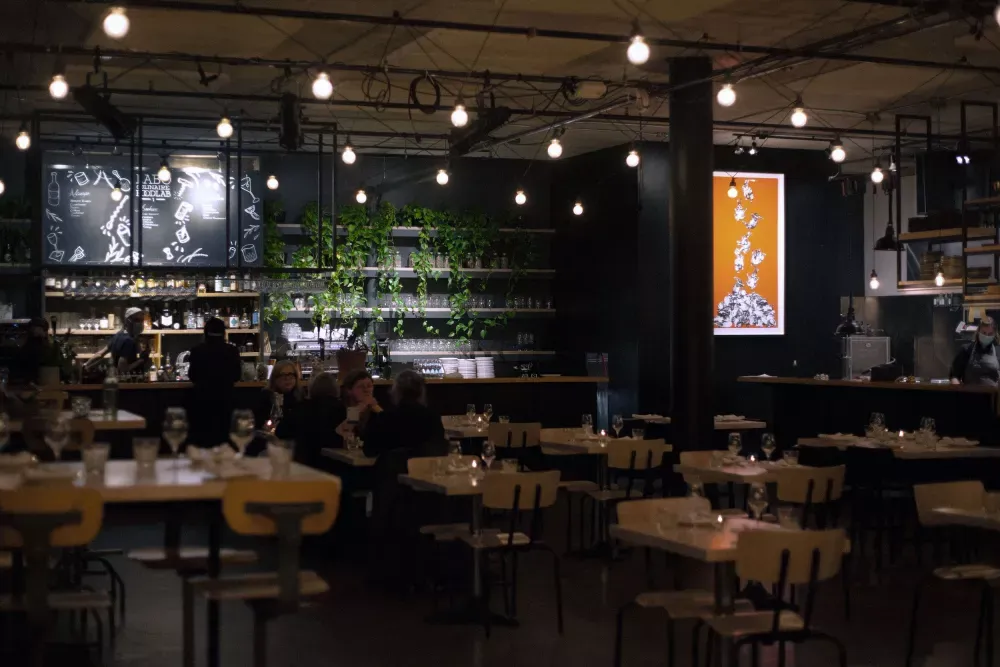
At work, Sustainable development
Renewable natural gas makes its mark at Montréal-Trudeau International Airport
Are you familiar with the Society for Arts and Technology (SAT)? Founded in 1996, this non-profit organization is dedicated to the development and promotion of digital literacy in all its forms. As a venue for experimentation and innovation, the SAT is also a living space that combines creation, broadcasting, training and catering spaces used by tens of thousands of people.
The SAT uses a number of energy sources for its operations, including natural gas, which powers its iconic building in Montreal’s Quartier des spectacles. Each year, the SAT uses between 50,000 and 100,000 cubic metres of natural gas for heating and for powering its restaurant.
In an effort to promote the use of renewable energy and reduce its carbon footprint, the SAT recently partnered with Énergir to replace 20% of its natural gas consumption with renewable natural gas (RNG)—a clean, renewable energy source that [significantly] reduces greenhouse gas (GHG) emissions—within two years.
To do this, the SAT is counting on the recovery of organic waste generated by its restaurant. Once collected, this organic material can be sent to a biomethanation plant to create RNG, which will then be distributed to Énergir’s network. In addition, since it can be produced locally, RNG contributes to the development of a circular local economy.
Sorting islands have also been installed in the SAT’s public spaces for recycling, as well as for organic waste recovery. Fun content is also posted on-site to introduce visitors to the process of creating this renewable energy and its positive impact on the environment.
For several years, Énergir has been involved in the development of the RNG industry in Quebec and has been working to increase the quantities of renewable natural gas in its system. Between 2021 and 2022 alone, the company has more than doubled its inventory and can now meet the needs of all customers who want to use renewable natural gas, such as the SAT. By 2030, Énergir plans to inject at least 10% of RNG into its gas system, which will avoid over one million tonnes of GHG emissions per year.